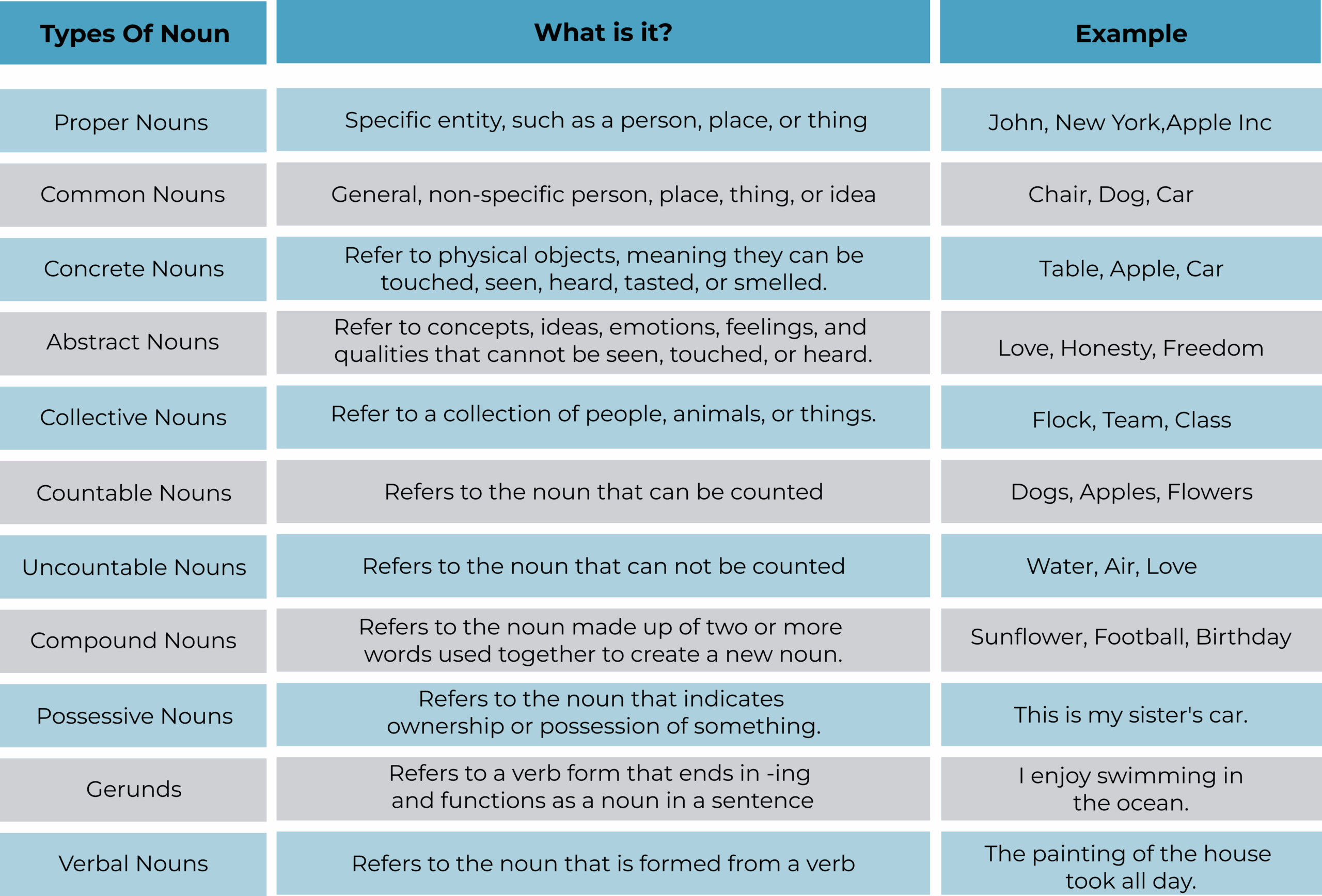Nouns are an essential part of any language, serving as the building blocks for communication. They name people, places, things, and ideas, giving us the tools we need to express ourselves effectively. Understanding the different types of nouns can help you improve your writing and communication skills. Let’s explore the various categories of nouns that exist in the English language.
1. Common Nouns: Common nouns are general names given to people, places, things, and ideas. They are not capitalized unless they appear at the beginning of a sentence. Examples include: city, man, dog, book.
2. Proper Nouns: Proper nouns are specific names given to individual people, places, or things. They are always capitalized. Examples include: New York City, John, Rover, Harry Potter.
3. Abstract Nouns: Abstract nouns refer to ideas, qualities, or states that cannot be perceived by the five senses. Examples include: love, happiness, freedom, anger.
4. Concrete Nouns: Concrete nouns are tangible objects that can be seen, heard, touched, tasted, or smelled. Examples include: table, music, tree, pizza.
5. Collective Nouns: Collective nouns refer to groups of people or things. They can be singular or plural, depending on the context. Examples include: team, family, herd, flock.
Nouns play a crucial role in our daily interactions, allowing us to communicate effectively and convey our thoughts and ideas. By understanding the different types of nouns and how they function in sentences, you can enhance your writing skills and become a more proficient communicator. So, the next time you sit down to write, pay attention to the nouns you use and consider how they contribute to the overall clarity and impact of your message.
In conclusion, nouns are the foundation of language, providing us with the tools we need to express ourselves. By familiarizing yourself with the various types of nouns and their functions, you can improve your writing and communication skills. Whether you’re writing a novel, composing an email, or simply having a conversation, nouns will always be there to help you convey your thoughts and ideas effectively.
